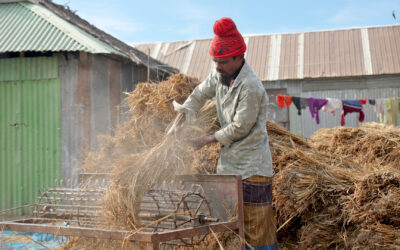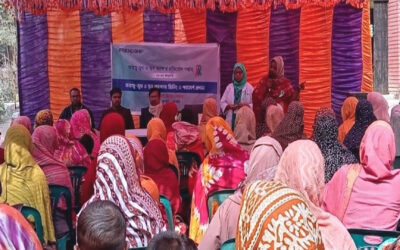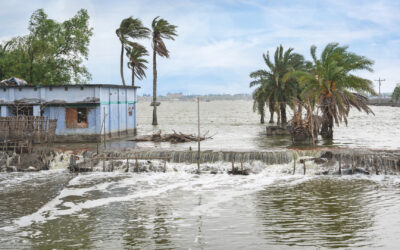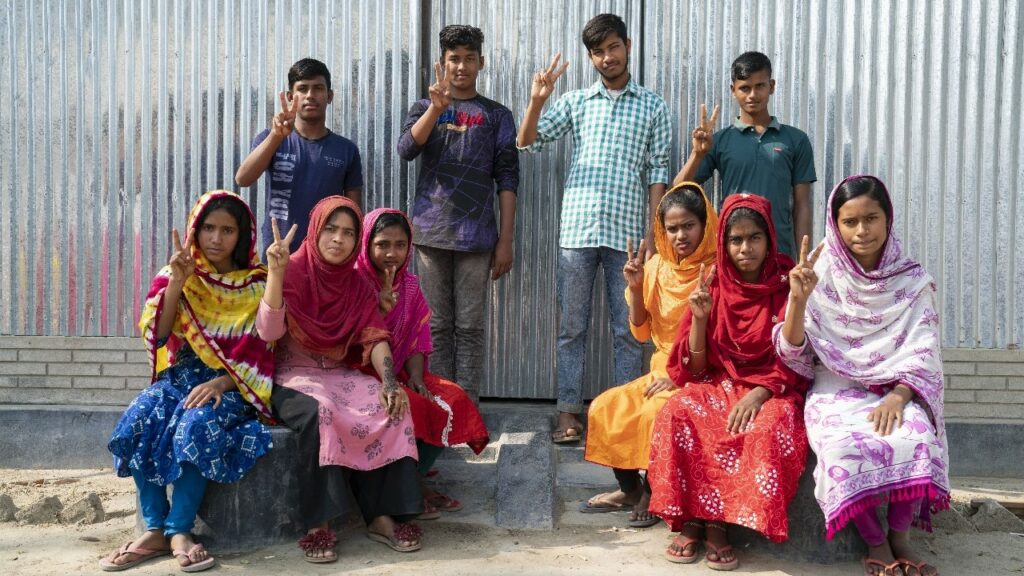
by Runa Khan
August 20, 2024
Mid July to the beginning of August, Bangladesh witnessed a monumental shift as a student-led movement transformed into a nationwide revolution, which has shifted paradigms and brought to the fore a new interim government. This seismic change, which led to the emergence of Bangladesh 2.0, is a deep true “Beacon of Hope” to those who lived in fear and in an environment of injustice and silent poverty. Temporary disruption immediately after such a unique ‘revolution’, though badly regrettable in certain of its manifestations, is hardly avoidable. The real challenge, though, is often the following months and years and dangers lurk all around. But we must have faith and hope that deep understanding and empathy is felt by the leaders yet they need strength in dealing with the difficult reality which so often surfaces following such an uprising. People in Bangladesh are comparing this to the ‘French Revolution’ regarding injustice, as the source was not just one element but years of injustice and fear, but the strive towards controlling the negative elements of any revolution is in the forefront of the mind of every true citizen of Bangladesh. It is the first commitment of the Interim Government, and each of them are striving daily, to ensure security, peace and justice before anything else.
Friendship welcomes and congratulates the members of the Interim Government of Bangladesh, led by the most recognized face of the country internationally and also one of the most recognized nationally – Nobel Laureate Dr. Muhammad Yunus, alongside our Salehuddin Ahmed, Dr. Asif Nazrul, Md. Touhid Hossain, Sharmeen Murshid, Rizwana Hasan, M Sakhawat Hossain, A F M Khalid Hossain, Nurjahan Begum, Adilur Rahman Khan, A. F. Hassan Ariff, Farida Akhter, Sharmeen Murshid, Supradip Chakma, Bidhan Ranjan Roy, Faruk-e-Azam (Bir Protik), Muhammad Fouzul Kabir Khan, Wahiduddin Mahmud, Jahangir Alam Chowdhury and the two outstanding youth representatives, Nahid Islam and Asif Mahmud. We are so proud of them – especially, as we see today, all over the world, many under 40 in politics are becoming changemakers… Heartiest congratulations also to our dearest Lamiya Morshed on being appointed as the Principal Coordinator for SDGs.
We welcome them dearly! For organisations striving to do their small part for the people of Bangladesh, NGOs, many companies, foundations, and individuals – we look forward to this team leading – and also for the unvoiced people of Bangladesh.
Bangladesh was the first country in the world to have set up, in 1996, a unique non-partisan system of a caretaker government to ensure free and fair elections. This is studied as a model by other countries facing similar issues of political polarization and mistrust in the electoral process when conducted under the supervision of the political parties in power. It was abolished by those in power in 2011 after the last caretaker government stayed in place from 2006-2008.
Starting in July 2024, a student-led quota reform protest transformed into a nationwide movement. Unbelievable drama unfolds in the news daily. The reports are heartbreaking and shocking. No wonder suppressed information of decades-long wrongdoings is coming to light. What about the millions of underserviced people all over the country? How do we ensure proper and equitable growth in this new dawn?
Today we welcome an Interim Government whose members have worked with the masses of the country nationwide. We hope that Bangladesh will be an example for the world of what is possible if the mass wants and needs a change.
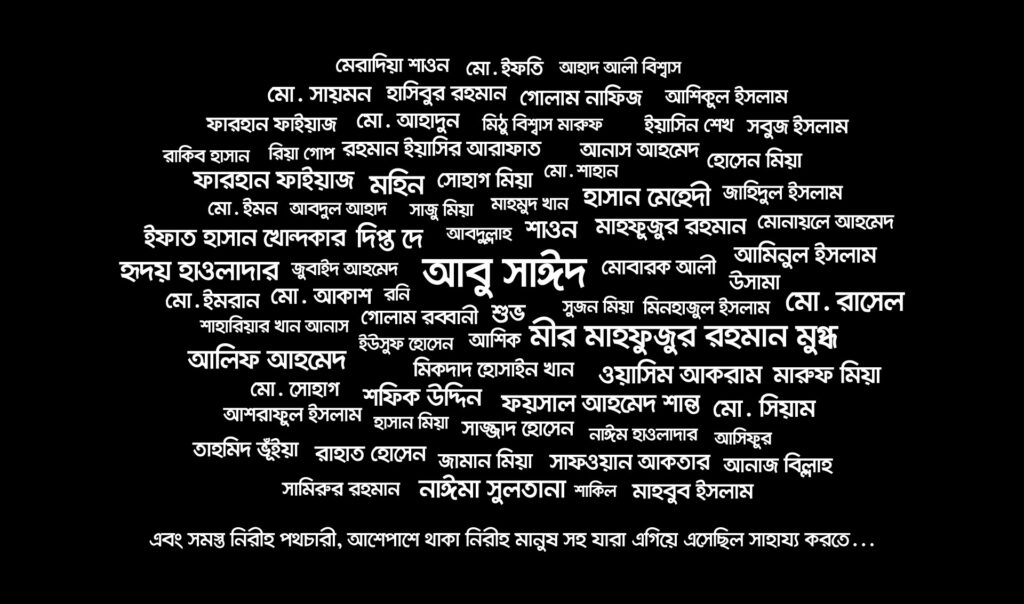
Overview of Friendship’s Situation
Friendship works in the most remote and most unaddressed areas of the country – river islands and coastal belts of Bangladesh.
Of course, in the last weeks, the most impacted was our Education sector- our schools and learning centres were totally closed, as all educational institutions in the country for 12 days, both in the north and the Rohingya camps. However, as the new age dawns, our students all realise the immensity of hope it conveys and they are excited, they are hopeful and feel able to catch up with their missed studies – and I am hopeful and actually quite sure that they will be able to do this very well. Hope is a great driver!
Our Inclusive Citizenship Sector was also impacted as it was difficult to provide legal assistance since courts were closed, though urgent services were given through the National Legal Aid Service Organization (NLASO), as Friendship has its own booth at the Govt. Legal Aid office in Dhaka, the capital. Friendship’s legal teams also continued to provide door-to-door legal and emergency services. Friendship’s health services continued, through the ships, land hospitals and in the Rohingya camps though due to the turmoil and curfews, with fewer patients. We served many wounded and emergency patients who came with critical wounds during the unrest.
Furthermore, the Friendship students and alumni who took part in the movement, are unharmed and by God’s Grace remain safe. Offices and activities of group meetings, agriculture, plantations etc. were halted temporarily for about 3 weeks but is now getting back to normal.
News and contradictory news are stemming from media around the world. We understand that different countries have different ways of addressing the uprising in Bangladesh; each with its own agenda, and own interest, and thus the news coming from the media of a particular country often exemplifies and also amplifies the views of that particular country. Disruption, vandalism, and apparent ethnic clashes are realities, but these are committed more by individual opportunist groups who have personal grudges or are instigated by people with their own agenda, and the route towards a society of security and rule of law is a work in progress. While we await the state to better ensure everyone’s security, we also see students, individuals, and communities offering their care, bodies, and strength to protect their neighbourhoods, minorities, and their assets.
Bangladesh is indeed going through a transition! No one can deny that. But it is a crisis that is leading to hope and transparency! We need help to bring the real Bangladesh to the world—people who are strong, true, hardworking, smiling, and beautiful. We need our bilateral and unilateral partners today to help us out of this crisis—help us now when our people are—again—striving towards a better future. Trust the people of Bangladesh, and the Advisory Group to create the environment for the transition to a functioning democracy.
As Bangladesh transitions into a new chapter, the challenges are immense, but so are the opportunities. Even at this moment, eleven districts in Bangladesh are experiencing severe flooding caused by heavy rainfall and upstream water releases. Friendship remains committed to overcoming the current adversities, with a renewed focus on ensuring that the people we serve can rebuild their lives with quality, transparency and hope. The resilience displayed by our Friendship teams during this tumultuous period is a testament to the enduring spirit of the people of Bangladesh. As we move forward, there is a collective resolve that Bangladesh 2.0 will be a nation defined by opportunity, dignity, and hope for all its citizens.

